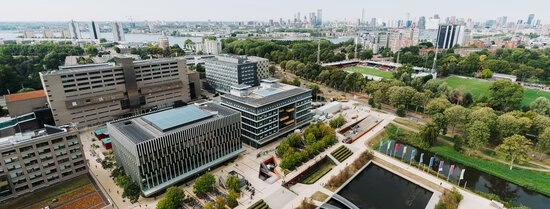The Dutch Research Council (NWO) has awarded Dr. Alice Murphy of Erasmus School of Philosophy with an individual NWO Veni grant. The NWO Veni grant, of up to 320.000 euros, is awarded to excellent researchers who have recently obtained their PhD to conduct independent research and develop their ideas for a period of three years. Laureates are at the start of their scientific careers and display a striking talent for scientific research.
Alice Murphy is currently a postdoctoral fellow in philosophy of science at the Munich Center for Mathematical Philosophy (MCMP) in Munich. She joined the center after receiving her PhD (2020) from the University of Leeds, UK.
Murphy's research focuses on imagination, creativity, and aesthetic values in science, as well as the relations between thought experiments and other practices such as computer simulations and physical experiments. She is co-editor of The Aesthetics of Scientific Experiments (Routledge, 2023) and is currently working on aesthetic values and imagination in the context of central topics in the epistemology of science including understanding and testimony. At the MCMP, she also taught courses on topics such as imagination and fiction in science, philosophy of art and creativity, and feminist epistemology.
Murphy will join Erasmus School of Philosophy in Fall 2024, to work on her NWO Veni project.
About the three-year NWO Veni project
The three-year NWO Veni project focuses on ‘Aesthetic Values and the Social Epistemology of Science’. Contemporary philosophy of science emphasizes the importance of understanding the social aspects of science, exploring the impact of ethical values on research, the collective production of scientific knowledge, and the role of trust in collaboration and science communication. However, discussions regarding aesthetic values in science have largely evolved independently of these issues. The Veni project aims to bridge this gap by offering a new perspective on aesthetic values in science, aligning the literature more closely with scientific practice by highlighting their role within science’s social dimensions.
The Committee considers the project “original and innovative as it promises to offer exciting new perspectives not only on the values, judgments and imaginaries implied in scientific practices, but also on a host of contemporary debates in aesthetic theory as well as the philosophy of science.”
- More information
For more information, please contact Eddie Adelmund (adelmund@esphil.eur.nl).

